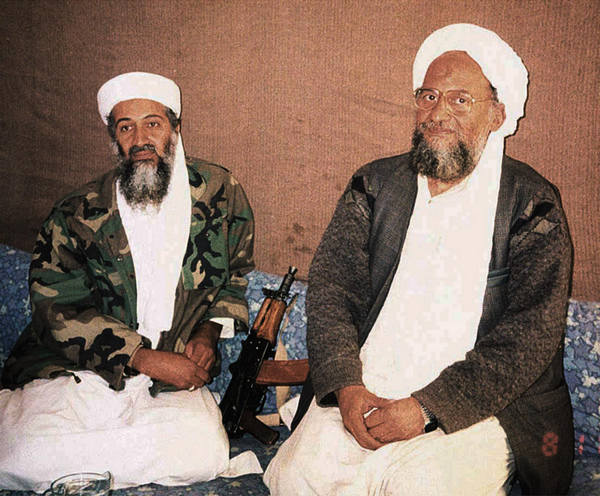Global General
Al-Zawahri succeeds bin Laden as al-Qaida leader
(Agencies)
Updated: 2011-06-17 06:55
 |
Large Medium Small |
|
|
Al-Zawahri and his backers seemed to understand that, so instead of declaring himself bin Laden's successor in his first public video eulogizing the slain al-Qaida leader, al-Zawahri waited for a call by fellow jihadis, said Bruce Riedel, a former CIA officer and al-Qaida expert at the Brookings Institution. The idea was to create the impression of popular support, he said.
US officials said they'll be watching for signs that al-Zawahri is a leader in name only, with affiliates branching out even more on their own.
They noted that communications captured in the attack on bin Laden in Abbottabad, Pakistan, showed al-Qaida's Yemeni branch, al-Qaida in the Arabian Peninsula, argued against bin Laden's idea of spectacular attacks in the US and in favor of smaller operations.
But al-Zawahri's lack of universal acceptance within the organization, analysts said, could give him added incentive to stage a spectacular attack against a prestige target, most likely American, to boost his leadership credentials.
"He must already be planning a big attack to convince the skeptics that he is qualified as a leader," said Khalil al-Anani, an expert on Islamic groups from Durham University in Britain. "He will be under pressure to do that, and quickly."
Al-Zawahri pledged earlier this month to avenge the slaying of bin Laden and to continue the terror network's campaign against the US and other Western interests.
"He was a given leader from the outset. But he doesn't have the same iconic status or personality as bin Laden," said Magnus Ranstorp, a terror analyst at the Royal Swedish Defense College. "He will focus on attacking the West in a big way. To avenge (bin Laden's death), but also to make himself ... even more effective and relevant."
The son of an Egyptian family of doctors and scholars, al-Zawahri's father was a pharmacology professor at Cairo University's medical school and his grandfather was the grand imam of al-Azhar University, Sunni Islam's supreme seat of learning.
He has a long history of radicalism, beginning at age 15 when he founded an underground cell of high school students to oppose the Egyptian government. He later merged his cell with other militants to form Egypt's Islamic Jihad.
Al-Zawahri was arrested in connection with the 1981 assassination of Egyptian President Anwar Sadat and served three years in prison. Many Egyptians remember him as the young man who stuck his head against the bars of the defendants' cage in a Cairo courtroom to answer Western reporters' questions in fluent English.
Upon his release, he headed to Afghanistan in 1984 to fight the Soviets, where he linked up with bin Laden. He later followed the al-Qaida leader to Sudan and then back to Afghanistan, where they found a safe haven under the radical Taliban regime.
Soon after came the 1998 bombings of the US embassies in Africa, followed by the 2000 suicide bombing of the USS Cole off the coast of Yemen, an attack al-Zawahri is believed to have helped mastermind.
Al-Zawahri has worked in the years since to rebuild al-Qaida's leadership on the Afghan-Pakistan border. Al-Qaida has inspired or had a direct hand in attacks in North Africa, Saudi Arabia, Yemen, Pakistan, the 2004 train bombings in Madrid and the 2005 transit bombings in London.
The CIA came close to capturing him in 2003 and killing him in 2004 - both times in Pakistan. In December 2009, they thought they were again close, only to be tricked by a double agent who blew himself up, killing seven CIA employees and wounding six more in Khost, Afghanistan.
The Pakistani Taliban welcomed the appointment of al-Zawahri and vowed to fight alongside the terror group against the US and "other infidel forces" around the world.
"We share the same path with al-Qaida. We are allies," Pakistani Taliban spokesman Ahsanullah Ahsan told The Associated Press by telephone from an undisclosed location.
Al-Zawahri has been in hiding for nearly 10 years and is widely believed to be near the Pakistan-Afghanistan border. He has appeared in dozens of videos and audiotapes in recent years, increasingly becoming the face of al-Qaida as bin Laden kept a lower profile.
| 分享按钮 |
